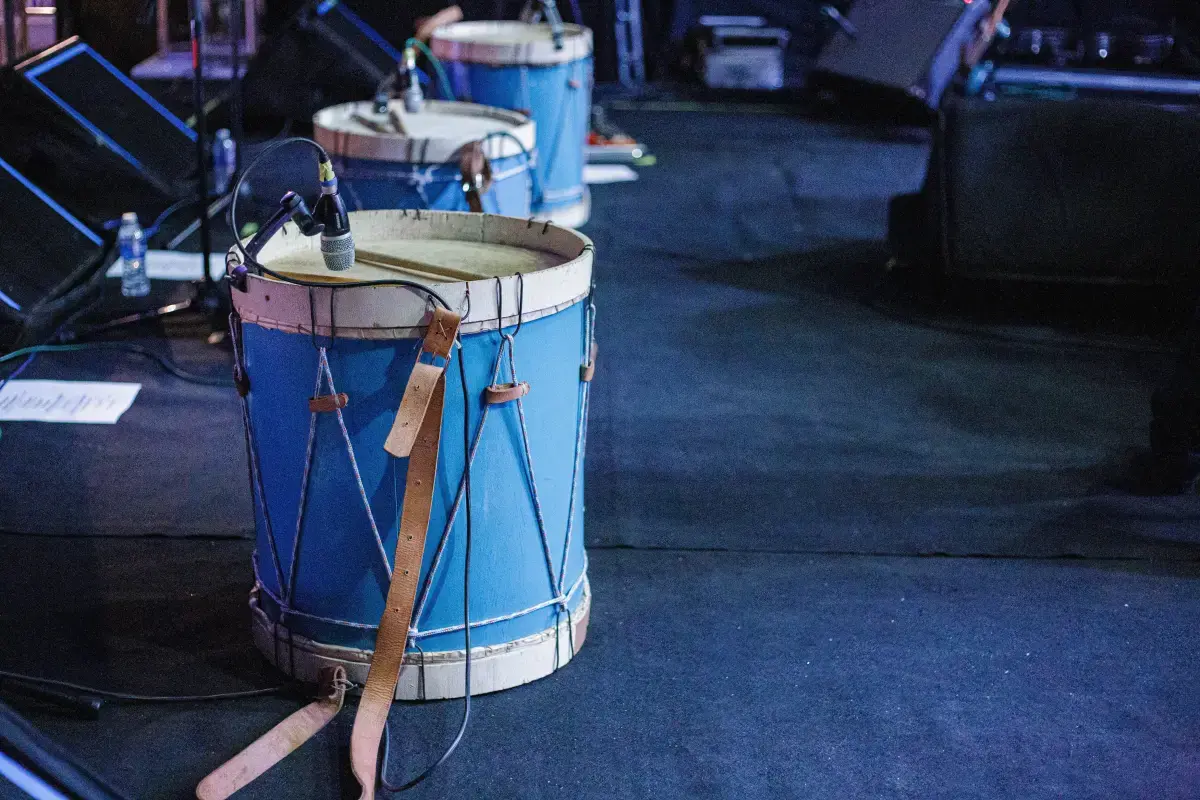
Music Journalist Job Description
What is a Music Journalist Professional?
A music journalist is a person who writes about music for a publication. Music journalists typically write album reviews, interviews with musicians, and articles about the music industry and how it affects artists and fans. The job of a music journalist has changed drastically over the years with the advent of the internet. In the past, most music journalism was done by print publications such as magazines and newspapers. Today, however, many music journalists work online for blogs or other types of websites. This change has made it easier for people to get into the field, but it has also created more competition.

What does a Music Journalist Expert do?
There are a few skills that all successful music journalists share. First, they have a deep love and knowledge of music. They understand different genres and subgenres, and they know what makes a good song or album. Second, they have strong writing skills. Music journalism requires being able to articulate complex thoughts and feelings about music in an interesting and engaging way. Third, successful music journalists are good at networking. Because they often need to interview high-profile musicians or gain access to exclusive events, they need to be able to build relationships with industry insiders. If youre interested in becoming a music journalist, there are a few things you can do to improve your chances of success. First, start writing about music for your own blog or website. This will help you develop your voice and style as a writer.

What are the Skills of a Music Journalist?
All music journalists need to have a firm understanding of the music industry and how it works. They should be able to read and understand industry trade publications, as well as have a working knowledge of the business side of the music business. Journalists also need to be able to identify new and up-and-coming artists, as well as have a good grasp on current trends in the industry. It is also important for music journalists to be well-versed in music history, so they can provide context and perspective on current trends. In addition to having a strong understanding of the industry, music journalists must also have excellent writing skills.

What makes an Expert Music Journalist?
They should be able to write clearly and concisely, while still being able to evoke emotion in their readers. Music journalists must also be creative in their approach to writing, as they often have to come up with new angles on stories that have been covered before. Finally, perhaps most importantly, music journalists must have a passion for music. They should be constantly listening to new albums and attending concerts so they can report back on their findings. Without a love for music, it would be impossible for anyone to succeed in this field.

What level of Experience & Qualifications are required to be a Music Journalist?
Industry Experience: 1. At least 2-3 years of experience in the music industry, preferably as a journalist and/or critic. 2. A strong background in music production and engineering, including knowledge of recording studios, sound systems, audio equipment and software tools for creating music. 3. Ability to identify emerging trends within the larger music industry landscape and spot potential opportunities for coverage or critique. 4. Thorough understanding of copyright law as it applies to musical compositions and recordings (including sampling). 5. Working knowledge of social media platforms used by artists, labels and other entities within the industry to promote their releases or events (e.g., Twitter, SoundCloud etc.). Training: 1. Comprehensive training on journalistic standards such as accuracy, objectivity & fairness with respect to reporting news related to the world of Music & Entertainment 2 Qualifications: 1) Bachelor’s Degree in journalism or similar field; Masters Degree preferred but not required depending upon relevant work experience Education: 1) Extensive research skills & ability to write compelling stories about topics related to Music & Entertainment that are both informative & entertaining at the same time; 2) Solid understanding & working knowledge of current digital publishing trends; 3) Expertise in interviewing musicians from various genres; 4) Familiarity with popular culture references associated with Music & Entertainment; 5) Proficient computer skills including proficiency in Microsoft Office applications such as Word, Excel

What is the Salary of a Music Journalist?
A junior music journalist typically earns an annual salary between $30,000 and $45,000. At this level, the journalist is usually responsible for conducting interviews with musicians and writing reviews of albums or live performances. They may also be expected to research topics related to music and create content for print or online publications. As a mid-level music journalist, salaries can range from $50,000 to around $75,000 annually. Journalists at this level are generally expected to have more experience in their field as well as a greater understanding of how the industry works. They might be given more responsibilities such as leading larger projects or providing editorial guidance on stories written by other team members. At the senior level, experienced journalists can expect a salary of up to $100,000 per year depending on their skillset and experience within the industry. Senior journalism positions often involve managing staff writers or editing copy before its published; they may also need to collaborate with other departments such as marketing or public relations teams in order to ensure that all stories align with brand values and messaging objectives.

What are the Working Conditions for a Music Journalist?
General working conditions for a music journalist vary greatly depending on the publication and type of job. In general, most writers are freelance or contract workers who work from home or in an office setting. They may be expected to attend concerts, interviews with artists, and other events related to the music industry. Music journalists also often have to conduct research online as well as through personal contacts in order to produce content that is both accurate and interesting. Depending on their level of experience and expertise, they may also be responsible for editing copy written by others before it goes into print. As a freelancer or contractor, hours can be irregular; however, deadlines are typically strict so time management skills are essential for success in this career field.

What are the roles and responsibilities of a Music Journalist?
To write objective and accurate reviews of music performances and recordings
To interview musicians and other music industry professionals
To provide news coverage of the music industry, including developments in the business, technology, and legal arenas
To chronicle the careers of both established and up-and-coming artists
To serve as a tastemaker for new music trends
To preview upcoming albums and singles for readers/listeners
To recommend new music to readers/listeners based on their preferences
To highlight under-the-radar artists who deserve attention
To keep readers/listeners up-to-date on the latest music news
To share personal thoughts and insights about individual songs, albums, or artists
To provide in-depth analysis of specific tracks or albums
To interview musicians and ask them probing questions about their work
To attend concerts and write honest, objective reviews of live shows
To gush over our favorite musicians and praise their every move (within reason!)
To call out artists when they make poor creative choices or behave badly in public
To promote upcoming albums, tours, and other projects
To interview musicians and ask them tough questions
To write reviews of albums, concerts, and festivals
To keep tabs on the latest music industry news and gossip

Where can I find Music Journalist jobs?
- Create a profile on gigexchange and promote your Music Journalist skills to advertise you are Open to New Work Opportunities
- Ensure your Resume (or CV), or online work profile is up to date and represents your skills and experience. Ensure your reputation reflects your ability & attitude.
- Apply for Music Journalist Jobs advertised on gigexchange.
- Practise Music Journalist interview techniques to ensure you represent your personality and ability succinctly and confidently.
- Accept the job offer if the salary meets your expectations and the employer mission and purpose reflects your core values.
Jobs
What are the best job boards for Music Writer jobs?

How can I hire Music Journalist staff online for my business?
The best job board for recruiting Music Journalist experts is gigexchange.com. Advertise full-time, part-time or contract jobs to find, hire & recruit trusted, experienced and talented Music Journalist candidates near you.

Are Music Journalist roles in demand in 2026?
Music Journalist experts are still in high demand in 2026. If you are an experienced Music Journalist or looking to train and become one. The job market is looking strong for Music Journalist jobs near me.